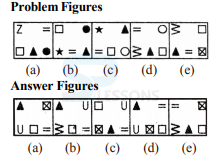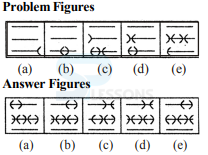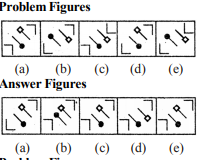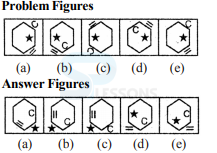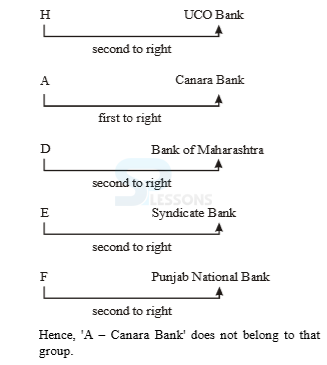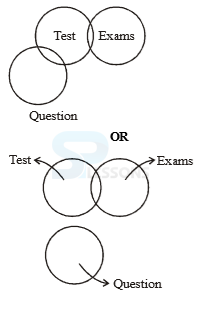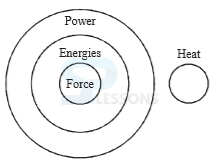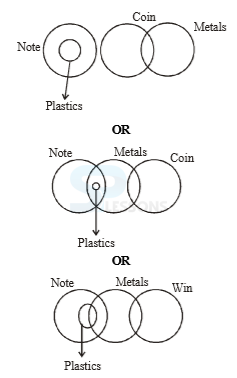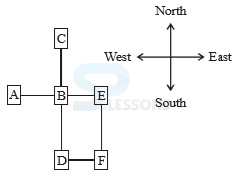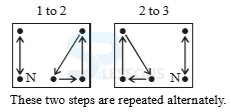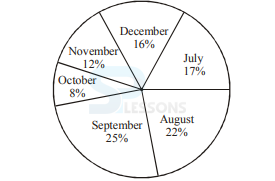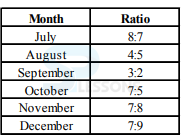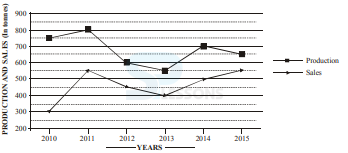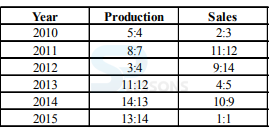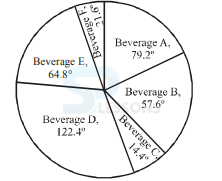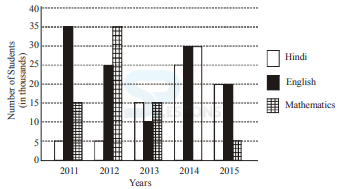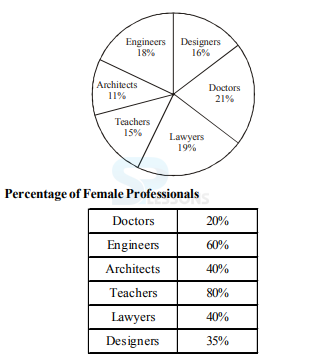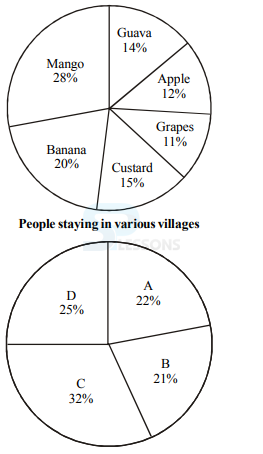 Introduction
Introduction
Career in Banking is one of the most lucrative and most sought after careers. In India, Bank Recruitment Exams are primarily conducted for recruitment of Probationary Officers, Clerks & Specialist Officers. India currently[2019] has 93 commercial and 27 public sector banks out of which 19 are nationalized and 6 are SBI and its associate banks and rest two are IDBI Bank and Bharatiya Mahila Bank, which are categorized as other public sector banks. Recruitment for Bank Probationary Officers, Management Trainees, Clerks and for various other posts generally follow a 3 step recruitment process: Preliminary Exam + Mains Exam + Interview & Group Discussion. The article SBI CLERK Mains Practice Set presents a practice set for the most sought after SBI CLERK recruitment. Until the year 2013, All Public Sector Banks used to conduct their own entrance test, GDs and Personal Interview for recruiting candidates. However, after 2014, IBPS started conducting recruitment Tests for 12 PSU Banks. IBPS holds a separate entrance test for recruitment.
Mains exams are very important to clear every government sector or bank related recruitment process in India. Only those candidates who are selected in the Mains round are allowed to move further up in the recruitment process. The marks obtained in the Mains exams are considered for the final merit list. Mains exams usually consist of 4 sections, with 155 questions with a time duration of 3 hours. Mains exams most certainly have negative marking.
 Quiz
Quiz
1. Which of the following symbols should replace the question mark in the given expression in order to make the expressions ‘I > L’ as well as ‘M > K’ definitely true?
I > J > K ? L < N = M
- A. >
B. <
C. <
D. =
E. Either < or <
- A. >, >, >
B. <, =, <
C. >, <. <
D. <, <, <
E. None of these
- A. F = B > P < M
B. P > B > M = F
C. P < B < F < M
D. B < P < M < F
E. None of these
- A. A and the representative from UCO Bank
B. F and G
C. H and the representative from Bank of Maharashtra
D. H and G
E. Representatives from Syndicate Bank and Oriental Bank of Commerce
- A. A
B. C
C. H
D. G
E. D
- A. H - UCO Bank
B. A - Canara Bank
C. D - Bank of Maharashtra
D. E -Syndicate Bank
E. F - Punjab National Bank
- A. C
B. H
C. The representative from Canara Bank
D. The representative from Punjab National Bank
- A. B is the representative from Bank of Maharashtra.
B. C sits second to the right of H.
C. The representative from Dena Bank sits to the immediate left of the representative from UCO Bank.
D. A sits second to the right of the representative from Bank of India.
E. The representatives from Bank of Maharashtra and syndicate Bank are immediate neighbors of each other
- Input : Put pocket hand watch he for them .
Step I: Put for the watches hand pocket them.
Step II: Put he for watch pocket hand them.
Step III: Put hand pocket watch for he them.
Step IV: Put pocket hand watch him for them.
And so on goes the machine. Study the logic and answer the questions that follow
- A. fly sky birds my su fur say
B. fly birds sky my fur su say
C. fly fur su my birds sky say
D. fly su fur my sky birds say
E. None of these
- A. slow dig hak pat dhurwa ran vi
B. slow hak dig pat ran dhurwa vi
C. slow dhurwa ran pat dig hak vi
D. slow ran dhurwa pat hak dig vi
E. None of these
- A. IV
B. V
C. VI
D. VIII
E. None of these
- A. Vicky is ranked first or fourth
B. Raman is ranked second or third
C. Tony is ranked fourth or fifth
D. Deepak is ranked third or forth
E. None of these
- A. Second
B. Third
C. Forth
D. Fifth
E. None of these
- A. Sunil is ranked third
B. Tony is ranked third
C. Priya is ranked sixth
D. All are true
E. None of these
- A. Deepak gets more than Vicky
B. Vicky gets more than Sunil
C. Priya gets more than Raman
D. Priya gets more than Vicky
E. None of these
- Give answer A if only conclusion I follows;
Give answer B if only conclusion II follows;
Give answer C if either conclusion I or conclusion II follows;
Give answer D if neither conclusion I nor conclusion II follows;
Give answer E if both conclusion I and conclusion II follow;
- I. No question is a test.
II. Some tests are definitely not exams.
- I. Some forces are definitely not powers.
II. No heat is a force.
- I. No energy is heat.
II. Some forces being heat is a possibility.
- I. No coin is plastic.
II. All plastics being metals is a possibility.
- I. No metal is plastic.
II. All notes are plastics
-
(I) There is only one floor between the floors on which R and Q live. P lives on an even numbered floor.
(II) T does not live on an even numbered floor. Q lives on an even numbered floor. Q does not live on the topmost floor.
(III) S lives on an odd numbered floor. There are two floors between the floors on which S and P live. T lives on a floor immediately above R's floor.
-
(I) E is placed fourth to the right of A. S is not placed immediately next to either A or E.
(II) R is placed immediately next (either left or right) to E. W is placed immediately next (either left or right) to S.
(III) Both N and W are placed immediately next to S. The word does not begin with R. A are not placed immediately next to W.
-
(I) Point A is to the west of Point B. Point C is to the north of Point B. Point D is to the south of Point C.
(II) Point G is to the south of Point D. Point G is 4 m from Point B. Point D is 9 m from Point B.
(III) Point A is to the west of Point B. Point B is exactly midway between Points A and E. Point F is to the south of Point E. Point D is to the west of Point F.
-
(I) 'one of its kind' is coded as 'zo pi ko fe' and 'in kind and cash' is coded as 'ga, to ru ko'
(II) Its point for origin' is coded as 'ba le fe mi' and 'make a point clear' is coded as 'yu si mi de'
(III) 'make money and cash' is coded as 'to mi ru hy' and 'money of various kind' is coded as 'qu ko zo hy'.
-
A. People from those affected areas with less rainfall may migrate to urban areas.
B. Govt. may announce an ex-gratia payment to all the farmers affected in these areas.
C. Govt. may declare these areas as drought affected areas
D. People may blame the govt. and agitate for not getting adequate water for cultivation.
E. None of these.
- A. The municipal corporation had repaired all the roads in the city before the onset of monsoon with good quality material.
B. A large number of people have developed spine related injuries after regularly commuting long distances by road within the city.
C. The municipal corporation has been careful in choosing the contractors for repairing roads in the past.
D. People always complain about potholed roads during the monsoon months.
E. None of these
- A. All organisms with identical genotypes and identical experience sometimes respond differently in different situations.
B. All organisms with different genotypes and identical experience always respond identically in identical situations.
C. All organisms with similar genotypes and similar experience always respond differently in identical situations.
D. All organisms with identical genotypes and identical experience always respond identically in identical situations.
E. All organisms with identical genotypes and different experience always respond identically in identical situations.
-
A. If the city municipal corporation increases taxes on a property by 1%, it will raise tax revenues, which can further be used for garbage disposal management.
B. The Leader of the opposition at the Parliament argued that a restriction on the import of Chinese manufacturing products will increase the sales of Indian manufacturing products.
C. An advertisement using more than 25 words of text will not be read, and when an advertisement is not read, the product is not sold. Therefore, the fewer words an advertisement has, the more effective it will be in promoting its product.
D. The balance of payment of a country will improve if the country reduces its imports and increases exports.
E. Citizens earning more than ` 15 lakhs per annum pay at an increased tax rate of 40%. Citizens earning less than ` 1 lakh per annum can be exempted from paying income taxes without decreasing the revenues of the Income Tax Department.
- A. Only (A)
B. Only (B)
C. Only (C)
D. Only (D)
E. Both (A) and (B)
-
A. Only (A)
B. Only (B)
C. Only (D)
D. Only (C)
E. None of these
-
A. Only (A)
B. Only (B)
C. Only (D)
D. Only (E)
E. Both (A) and (E)
-
A. General-purpose applications
B. Microsoft Outlook
C. Web-hosted technology
D. Office Live
E. None of these
- A. Vertical justifying
B. Vertical adjusting
C. Dual centering
D. Horizontal centering
E. Vertical centering
- A. chat
B. instant messaging
C. instantiates
D. electronic mail
E. None of these
- A. Word processing
B. Spreadsheet design
C. Web design
D. Database management
E. Presentation generation
- A. video data and information
B. voice and non voice
C. music and video
D. video and audio
E. None of these
- A. Cyborgaming crime
B. Memory shaving
C. Syn flooding
D. Software piracy
E. None of these
- A. mouse
B. scanner
C. printer
D. CD-ROM
E. Keyboard
- A. cell location
B. cell position
C. cell address
D. cell coordinates
E. cell contents
- A. procedural language
B. structures
C. natural language
D. command language
E. programming language
- A. documentation
B. output
C. reporting
D. spec sheets
E. Directory
P true but S = P doesnot hold time. 3. Answer:Option B (4 -8) : According to the question 4. Answer:Option C 5. Answer:Option E 6. Answer:Option B Explanation: 7. Answer:Option D 8. Answer:Option E (9-11): These questions follow the following steps.9. Answer:Option A Explanation: Step IV is similar to original statement. Considering step III as original step VII will be the step IV in this output scheme. 10. Answer:Option B Explanation:
Original 1 2 3 4 5 6 7 Step I 1 6 5 4 3 2 7 Step II 1 5 6 4 2 3 7 Step III 1 3 2 4 6 5 7 Step IV 1 2 3 4 5 6 7 Step V 1 6 5 4 3 2 7 StepVI 1 5 6 4 2 3 7 StepVII 1 3 2 4 6 5 7 Step VIII 1 2 3 4 5 6 7 11. Answer:Option C Explanation: Arrangement is 1, 5, 6, 4, 2, 3, 7. Hence step VI 12. Answer:Option D Explanation: Raman scores the highest and Tony gets the least. Vickey always scores more than Priya which in turn scores more than Ankit. If Sunil is ranked sixth and Ankit is ranked fifth then considering above (a) and (c) is ruled out. (b) is also not possible. only (d) is true. Hence (d) is correct option. 13. Answer:Option C Explanation: From the same conclusion as in the previous question. If Raman gets the highest then Vickey should not be ranked lower than fourth. Hence (c) is the correct option. 14. Answer:Option E Explanation: There is a logical error in this question. Hence (e) none of these is the correct option. 15. Answer:Option A Explanation: If we consider Raman, he scores highest and Tony lowest as given. If Sunil gets second then Vickey can’t get more than Sunil. Priya also can’t get more than Raman. Vickey gets more than Priya. Hence (b), (c), (d) can be ruled out. only (a) is true. Hence (a) is the correct option. 16. Answer:Option D Explanation: Conclusion I: False Conclusion II: False (17-18): 17. Answer:Option B Conclusion I: False Conclusion II: True 18. Answer:Option A Conclusion I: True Conclusion II: False (19-20): 19. Answer:Option E Conclusion I: True Conclusion II: True 20. Answer:Option D Conclusion I: False Conclusion II: False 21. Answer:Option E Explanation: From statements I, II and III
StepVII 1 3 2 4 6 5 7 Slow ran dhurwa pat hak dig vi Step V 1 6 5 4 3 2 7 Slow hak dig pat ran dhurwavi vi 22. Answer:Option B Explanation: From statements I and III
Floor Number Person 6 P 5 T 4 R 3 S 2 Q 1 V 23. Answer:Option B Explanation: From statements I and III 24. Answer:Option E 25. Answer:Option E Explanation: Possible fallout may be drought affected area which is not given in any options. 26. Answer:Option B Explanation: Option A, C, and D does not explain the effect of given cause. Only option B can be effect of damaged roads. 27. Answer:Option D Explanation: The argument stated in the information is that all animal actions are a result of an interaction between experiences and genotype. Therefore, if all experiences and genotype are identical, all actions will also be identical. This is mentioned in option D. 28. Answer:Option C Explanation: Option D is not analogous from any angle. Point of Chinese manufacturing is also not logical in option B. Option C exhibits the analogous relationship. If number of words is high, the text will not be read and when an advertisement text is not read, the product is not sold. Hence, the correct answer is Option C. Note the relationship is inverse in nature. 29. Answer:Option C 30. Answer:Option C 31. Answer:Option D 32. Answer:Option A Explanation: The movement and other changes in designs can be shown as 33. Answer:Option D Explanation: In the subsequent figures respectively one, two zero............ curve(s) is/are added and curves move along the line segment and get reversed in each subsequent figure. 34. Answer:Option C Explanation: In the subsequent figures one design is left intact while other three designs are inverted. 35. Answer:Option D Explanation: In the subsequent figures the star moves three steps in clockwise direction inside the hexagon after every two figures. The equal sign moves respectively one and two step(s) in clockwise direction along the sides of the hexagon. The design C moves in and out the hexagon in the subsequent figures and moves respectively two and one step(s) in clockwise direction. In other words, this problem is based on the rule (1) = (5) and hence (2) = (6). 36. Answer:Option B 37. Answer:Option A 38. Answer:Option C 39. Answer:Option A 40. Answer:Option B 41. Answer:Option A 42. Answer:Option A 43. Answer:Option C 44. Answer:Option E 45. Answer:Option A
1 2 3 4 5 6 A S E A N S W E R
DIRECTIONS (Qs. 46-50) : Study the following pie-chart and table carefully and answer the questions given below :
PERCENTAGEWISE DISTRIBUTION OF THE NUMBER OF MOBILE PHONES SOLD BY A SHOPKEEPER DURING SIX MONTHS
Total number of mobile phones sold = 45,000
The respective ratio between the number of mobile phones sold by company A and company B during six months
46. What is the respective ratio between the number of mobile phones sold of company B during July and those sold during December of the same company?
76. What is the difference between the number of students passed with 30 as cut-off marks in Chemistry and those passed with 30 as cut-off marks in aggregate?
46.
Answer:Option C
Explanation:
Number of mobiles sold of company B in July = 3570 Number of mobiles sold of company B in December = 4050 Required Ratio = 3570 : 4050 = 119 : 135
47.
Answer:Option C
Explanation:
Total mobiles sold by company A during November = 2520 Total mobiles sold by this company at discount = 35% of 2520 = 882 Total mobiles sold by company A without discount = 2520 – 882 = 1638
48.
Answer:Option D
Explanation:
Mobile phones sold of company B during October = 1500 Total profit earned on the mobile phones = `(433 × 1500) = ` 6,49,500
49.
Answer:Option E
Explanation:
Number of mobile phones sold of company A during July = 4080 Number of mobile phones sold by company A during December = 3150 Required percentage [latex]\frac{4080}{3150}[/latex]*100 = 129.5
50.
Answer:Option A
Explanation:
Mobile phones sold of company B during August = 5500 Mobile phones sold of company B during September = 4500 Total number of mobile phones = 5500 + 4500 = 10,000
51.
Answer:Option D
Explanation:
Percentage increase [latex]\frac{700-550}{550}[/latex]*100 = 27.2
52.
Answer:Option B
Explanation:
Percent of production =
[latex]\frac{400}{550}[/latex]*100 = 72.72
53.
Answer:Option C
Explanation:
= [latex]\frac{600+700+800+600+650+700}{6}[/latex] = 675
54.
Answer:Option E
Explanation:
Total production of company A = 4050
Total sales of company A = 2750
Required ratio 4050 : 2750 = 81 : 55
55.
Answer:Option C
Explanation:
Required ratio = production of B in the year 2010 : Production of B in the year 2012 = 600 : 800 = 3 : 4
56.
Answer:Option B
Explanation:
Required percentage
[latex]\frac{14.4}{122.4}[/latex] *100 = 11.765 (12%) Approx
57.
Answer:Option A
Explanation:
Required Number = [latex]\frac{57.6+64.8}{360}[/latex] *6800 =[latex]\frac{122.4}{360}[/latex] *6800 = 2312
58.
Answer:Option C
Explanation:
Required difference = [latex]\frac{( 79.2+14.4)-(122.4+21.6 )}{360}[/latex] *6800 = [latex]\frac{93.6-144.0}{360}[/latex] *6800 = 952
59.
Answer:Option D
Explanation:
Required percentage = [latex]\frac{64.8+21.6}{360}[/latex] *100 = [latex]\frac{86.4}{360}[/latex] *100 = 24%
60.
Answer:Option A
Explanation:
Required Ratio = 21.6: 79.2 = 3:11
61.
Answer:Option D
Explanation:
[latex]\frac{15000+30000}{5000+35000+15000+25000+30000+30000}[/latex] *100 = [latex]\frac{45000}{140000}[/latex] *100 = 32.14=32%(Approx)
62.
Answer:Option E
Explanation:
In 2015,
Total number of girls = (20 + 20 + 15)[latex]\frac{38}{100}[/latex] *1000 = [latex]\frac{55*38*100}{100}[/latex] *100 = 17100
Total number of boys = 45000 – 17100 = 27900
Total number of boys who opted for Mathematics
27900 * [latex]\frac{5}{45}[/latex] *100 = 3100
63.
Answer:Option A
Explanation:
Required Ratio = ( 25 + 30) : (5 + 20) = 55 : 25 = 11 : 5
64.
Answer:Option A
Explanation:
Required Percentage = [latex]\frac{(15+10+15)*1000}{455030}[/latex] *100 = [latex]\frac{(40)*1000}{455030}[/latex] *100 = 8.79 (9%) Approx
65.
Answer:Option E
Explanation:
Required total number of students
= (5 + 35 + 15 + 15 + 20 + 5) * 1000
= 95 * 1000 = 95000
66.
Answer:Option E
Explanation:
Male Engineers + Male Designers
40% of (18% of 10500) + 65% of (16% of 10500)
Female Engineers + Female Designers
= 60% of (18% of 10500) + 35% of (16% of 10500)
Required ratio = (40 × 18)
+ (65 × 16) : (60 × 18 + 35 × 16)
= (720 + 1040) : (1080 + 560)
= 1760 : 1640 = 44 : 41
67.
Answer:Option C
Explanation:
Required % = [latex]\frac{19}{21}[/latex] *100 = 90%
68.
Answer:Option B
Explanation:
% of female professionals =
[20% of 21% + 60% of 18% + 40% of 11% + 80% of 15% + 40% of 19% + 35% of 16%]
= [latex]\frac{1}{100}[/latex][420 + 1080 + 440 +1200 + 760 + 560]%
= [latex]\frac{4460}{100}[/latex]% = 44.6%
% of male professionals
= 100% – 44.6% = 55.4%
Required diff
= (55.4 – 44.6)% of 10500
= 10.8% of 10500 = 10.8 × 105 = 1134
69.
Answer:Option D
Explanation:
Required % =
[latex]\frac{20*21}{ 80*15}[/latex] *100
=[latex]\frac{420}{ 12}[/latex]
= 35%
70.
Answer:Option A
Explanation:
Required ratio = [latex]\frac{60*11}{ 20*15}[/latex] = 11: 5
71.
Answer:Option D
Explanation:
No of persons from village C = 32% of 5800 = 1856
From village C 50% of 1856 = 928 persons favourite fruit is mango.
28% of 5800 = 1624 people’s favourite fruit is mango
Required % = [latex]\frac{928}{ 1624}[/latex]*100 = 57%
72.
Answer:Option E
Explanation:
People in village D = 25% of 5800
= 1450
Required no. of people
= {100 – (20 + 12)}% of 1450
= 68% of 1450 = 986
73.
Answer:Option c
Explanation:
Required no. = 15% of 5800 = 870
74.
Answer:Option B
Explanation:
Required no.
= 20% of 5800 – (50% of 21% of 5800)
= 1160 – 609 = 551
75.
Answer:Option A
Explanation:
Required no. = (12 + 11)% of 5800
= 23% of 5800 = 1334
76.
Answer:Option D
Explanation:
Required difference
= (No. of students scoring 30 and above marks in Chemistry) - (Number of students scoring 30 and above marks in aggregate)
= 27 - 21
= 6.
77.
Answer:Option B
Explanation:
We have 60% of 50 =[latex]\frac{60}{100}[/latex]*50 = 30
Required numbe r= No. of students scoring 30 and above marks in Physics = 32
78.
Answer:Option c
Explanation:
Number of students getting at least 60% marks in Chemistry
= Number of students getting 30 and above marks in Chemistry
= 21.
Number of students getting at least 40% marks in aggregate
= Number of students getting 20 and above marks in aggregate
= 73.
Required percentage
[latex]\frac{21}{73}[/latex]*100
= 28.77%
= 29%.
79.
Answer:Option D
Explanation:
We have 40% of 50 =[latex]\frac{40}{100}[/latex]*50 = 20
Therefore Required number
= Number of students scoring less than 20 marks in aggregate
= 100 - Number of students scoring 20 and above marks in aggregate
= 100 - 73
= 27.
80.
Answer:Option c
Explanation:
Since 66 students get 20 and above marks in Chemistry and out of these 21 students get 30 and above marks, therefore to select top 35 students in Chemistry, the qualifying marks should lie in the range 20-30.
- A. 119:145
B. 116:135
C. 119:135
D. 119:130
E. None of these
- A. 882
B. 1635
C. 1638
D. 885
E. None of these
- A. Rs. 6,49,900/-
B. Rs. 6,45,900/-
C. Rs. 6,49,400/-
D. Rs. 6,49,500/-
E. None of these
-
A. 110
B. 140
C. 150
D. 105
E. 130
-
A. 10,000
B. 15,000
C. 10,500
D. 9,500
E. None of these
-
A. 18
B. 38
C. 23
D. 27
E. 32
-
A. 65
B. 73
C. 79
D. 83
E. 69
-
A. 574
B. 649
C. 675
D. 593
E. 618
-
A. 81 : 64
B. 64 : 55
C. 71 : 81
D. 71 : 55
E. 81 : 55
-
A. 2 : 5
B. 4 : 5
C. 3 : 4
D. 3 : 5
E. 1 : 4
-
A. 7
B. 12
C. 18
D. 22
E. 29
-
A. 2312
B. 2313
C. 2315
D. 2318
E. None of these
-
A. 959
B. 955
C. 952
D. 954
E. None of these
-
A. 18
B. 14
C. 26
D. 24
E. None of these
-
A. 3: 11
B. 3: 13
C. 6: 11
D. 5: 11
E. None of these
-
A. 38
B. 28
C. 42
D. 32
E. 48
-
A. 1322
B. 1332
C. 1312
D. Cannot be determined
E. None of these
-
A. 11: 5
B. 12: 7
C. 11: 7
D. 12: 5
E. None of these
-
A. 19
B. 9
C. 12
D. 5
E. 23
-
A. 97000
B. 93000
C. 85000
D. 96000
E. None of these
-
A. 41: 44
B. 55: 53
C. 31: 35
D. 44: 35
E. None of these
-
A. 95
B. 98
C. 90
D. 85
E. 81
-
A. 1284
B. 1134
C. 1054
D. 1164
E. None of these
-
A. 42
B. 28
C. 15
D. 35
E. None of these
-
A. 11: 5
B. 3: 2
C. 5: 11
D. 2: 3
E. None of these
-
A. 48
B. 53
C. 61
D. 57
E. 45
-
A. 764
B. 896
C. 874
D. 968
E. None of these
-
A. 850
B. 864
C. 870
D. 812
E. None of these
-
A. 1160
B. 551
C. 1020
D. 609
E. None of these
-
A. 1334
B. 1286
C. 1300
D. 1420
E. None of these
| Subject | Marks out of 50 | ||||
|---|---|---|---|---|---|
| 40 and above | 30 and above | 20 and above | 10 and above | 0 and above | |
| Physics | 9 | 32 | 80 | 92 | 100 |
| Chemistry | 4 | 21 | 66 | 81 | 100 |
| Average (Aggregate) | 7 | 27 | 73 | 87 | 100 |
-
A.3
B.4
C.5
D.6
-
A.27
B.32
C.34
D.41
-
A.21%
B.27%
C.29%
D.31%
-
A.13
B.19
C.20
D.27
-
A.40-45
B.30-40
C.20-30
D.Below 20
| Month | Total number of Mobiles Sold | Total Number of Mobiles Sold of Company A | Total Number of Mobiles Sold of Company B |
|---|---|---|---|
| July | 7650 | 4080 | 3570 |
| August | 9900 | 4400 | 5500 |
| September | 11250 | 6750 | 4500 |
| October | 3600 | 2100 | 1500 |
| November | 5400 | 2520 | 2880 |
| December | 7200 | 3150 | 4050 |
| Year | Production of B |
|---|---|
| 2010 | 600 |
| 2011 | 700 |
| 2012 | 800 |
| 2013 | 600 |
| 2014 | 650 |
| 2015 | 700 |
Directions (Qs. 81-85) : The following questions consist of a single sentence with one blank only. You are given six words as answer choices and from the six choices you have to pick up two correct answers, either of which will make the sentence meaningfully complete.
81. The ability of a woman to do well does not .......... on whether it is a man’s world or not, because everyone has his/her own opportunities.
(1) trust (2) depend
(3) reckon (4) live
(5) rest (6) believe
-
A. (4) and (5)
B. (2) and (3)
C. (1) and (6)
D. (2) and (5)
E. (3) and (4)
-
A. (1) and (4)
B. (2) and (3)
C. (3) and (5)
D. (5) and (6)
E. (3) and (4)
-
A. (3) and (6)
B. (1) and (5)
C. (3) and (5)
D. (4) and (6)
E. (1) and (3)
-
A. (2) and (3)
B. (3) and (6)
C. (1) and (5)
D. (1) and (4)
E. (4) and (5)
-
A. (2) and (4)
B. (1) and (3)
C. (2) and (6)
D. (1) and (4)
E. (3) and (4)
-
(1) To elaborate briefly on these characteristics and dimensions that the author is talking about – NRMs are general tests intended to be used to classify students by percentile for measuring either aptitude or proficiency for admissions into or placement within a program.
(2) Contrastingly, the CRM, such as a locally produced achievement test, measures absolute performance that is compared only with the learning objective, hence a perfect score is theoretically obtainable by all students who have a mastery of the pre-specified material, or conversely, all students may fail the test.
(3) In most of these books, the authors classify a measurement strategy as either norm-referenced (NRM) or criterion-referenced (CRM).
(4) Another author points out how the type of interpretation that an NRM offers is the relative performance of the students compared with that of all the others resulting in, ideally, a bell curves distribution.
(5) Numerous books on constructing and using language tests have been written by various authors.
(6) CRM, on the other hand, are more specific, achievement or diagnostic tests intended to be used for motivating students by measuring to what percent they have achieved mastery of the thought or learned material.
(7) One of the authors clearly delineates the differences between these two types by focusing on the categories of “test characteristics” and “logistical dimensions.”
-
A. 7
B. 2
C. 3
D. 4
E. 5
-
A. 1
B. 2
C. 3
D. 4
E. 5
-
A. 1
B. 2
C. 3
D. 6
E. 5
-
A. 1
B. 2
C. 3
D. 4
E. 6
-
A. 1
B. 2
C. 7
D. 4
E. 5
- A. whole
B. part
C. material
D. issue
E. most
- A. raise
B. brings
C. refer
D. stop
E. cause
- A. sensed
B. called
C. nothing
D. but
E. term
- A. due
B. results
C. reason
D. those
E. because
- A. done
B. known
C. ruled
D. bestowed
E. said
- A. mastering
B. sending
C. melting
D. calming
E. increasing
- A. make-shift
B. ceasing
C. troubled
D. perpetual
E. absent
- A. dwindling
B. manufactured
C. descending
D. generating
E. supplied
- A. progress
B. reduced
C. existence
D. midst
E. absence
- A. repel
B. waft
C. monitor
D. bring
E. access
-
A. Democratic nations are richer and have a better track record of educating their citizens.
B. Education does not necessarily lead to greater enthusiasm for a democratic form of government
C. Educated societies with an autocratic form of government enjoy a better quality of life than democracies.
D. Citizens can fulfill their personal aspirations only under a democratic form of government.
E. Democracy makes citizens more intolerant as it does not restrict personal freedoms
-
A. Upgrades
B. Prefers
C. Recommends
D. Advocates
E. Publicizes
-
A. Job prospects have been on the rise in Egypt in recent times.
B. Authoritarian leaders have played a vital role in reforming Egypt’s education system.
C. Egypt has one of the youngest and best-educated demographics in the world.
D. Egypt is likely to be a successful vibrant democracy.
E. There has been a rise in education levels in Egypt in recent times.
-
A. All (1), (2) and (3)
B. Only (2) and (3)
C. Only (3)
D. Only (1) and (2)
E. None of these
-
A. Lack of access to education.
B. Vast numbers of uneducated and unemployable youth.
C. Frustration with the existing system of governance.
D. Unavailability of natural energy resources like coal and oil.
E. Government’s overambitious plans for development.
-
A. None
B. Only (1)
C. Only (1) and (3)
D. Only (2)
E. All (1), (2) and (3)
-
A. Democratic nations are chaotic on account of individual freedoms.
B. Most democratic countries frequently have violent revolts among their citizens.
C. The divide between the poor and educated is growing wider in democracies.
D. High levels of pollution on account of the frantic pace of infrastructure development.
E. Resigned acceptance of intrinsic corruption in the education system.
-
A. Only (1)
B. Both (2) and (4)
C. Only (2), (3) and (4)
D. Only (1), (2) and (3)
E. All (1), (2), (3) and (4)
-
A. Only (4)
B. Both (2) and (4)
C. Both (1) and (3)
D. Only (2), (3) and (4)
E. All (1), (2), (3) and (4)
-
A. Only (4)
B. Both (1) and (3)
C. Both (2), (3) and (4)
D. Only (1), (3) and (4)
E. All (1), (2), (3) and (4)
-
A. Only (3)
B. Both (1) and (4)
C. Only (1), (3) and (4)
D. Only (1), (2) and (4)
E. All (1), (2), (3) and (4)
116. Money deposited at a bank that cannot be withdrawn for a preset fixed period of time is known as a?
-
A. Term deposit
B. Checking Account
C. Savings Bank Deposit
D. No Frills Account
E. Current Deposit
-
A. CHAPS
B. SWIFT
C. NEFT
D. SFMS
E. CHIPS
-
A. Foreign Currency
B. Internet Banking
C. US Dollars
D. Travelers' cheques
E. Credit Cards
-
A. Home Loans
B. Working capital finance
C. Corporate term loans
D. Infrastructure financing
E. Export Credit
-
A. Revenue Deficit
B. Budgetary Deficit
C. Zero Budgeting
D. Trade Gap
E. Balance of payment problem
-
A. Fiscal Policy Functions
B. Exchange Control Functions
C. Issuance, Exchange and destruction of currency notes
D. Monetary Authority Functions
E. Supervisory and Control Functions
-
A. Identity Proof
B. Address Proof
C. Recent Photographs
D. Domicile Certificate
E. None of these
-
A. The bank that collects the cheque
B. The payee's bank
C. The endorsee's bank
D. The endorser's bank
E. The bank upon which the cheque is drawn
-
A. All scheduled commercial banks excluding RRBs
B. All scheduled commercial banks including RRBs
C. Only Public Sector Banks
D. All Banking Companies
E. All scheduled banks except private banks
-
A. Individual Banks, Board
B. Ministry of Commerce
C. Ministry of Finance
D. RBI
E. Interest Rate Commission of India
-
A. It is a card issued by a Rating Agency
B. It is a card which can be used for withdrawing cash or making payment even in the absence of any balance in the account
C. It is a card which can be used for withdrawing cash or making payment if there is balance in the account
D. It is a card which carries prepaid balance
E. It is a card which can be used for making STD calls
-
A. Bad debt
B. Book debt
C. Non Performing Asset
D. Out of order accounts
E. Overdrawn accounts
-
A. Rate of interest on loans and advances will be costlier
B. Industrial output would be affected to an extent
C. Banks will increase rate of interest on deposits
D. Industry houses may borrow money from foreign countries
E. All of these
-
A. Swabhiman
B. Jeevan Dhara
C. Jeevan Kalyan
D. ASHA
E. Swavalamban
-
A. Tade Ipadeola
B. Abdul Kalam
C. Rebecca Hunt
D. Victoria Grossack
E. None of these
-
A. Coal India Limited
B. NTPC
C. Bharat Heavy Electricals Limited
D. Steel Authority of India
E. None of these
-
A. USA
B. China
C. India
D. Brazil
E. None of these
-
A. Fringe Benefit Tax
B. VAT
C. Cash Withdrawal Tax
D. Income Tax
E. Customs and Excise Duty
-
A. New York Stock Exchange
B. Kolkata Stock Exchange
C. National Stock Exchange (India)
D. Hong Kong Stock Exchange
E. Bombay Stock Exchange
-
A. Bharatnatyam
B. Kathakali
C. Kuchipudi
D. Kathak
E. None of these
-
A. Insurance provided by banking organization
B. Insurance given to bank by central bank
C. Insurance policy giving bank rate interests
D. Insurance assured to public
E. None of these
-
A. Rises
B. Falls
C. Remains unchanged
D. First rises and then falls
E. None of these
-
A. South Korea
B. China
C. Singapore
D. India
E. USA
-
A. Art and Culture
B. Music
C. Classical Dance
D. Literature
E. None of these
-
A. CII
B. CIC
C. CRY
D. PAC
E. None of these
-
A. Only (A)
B. Only (B)
C. Only (C)
D. Only (B) and (C)
E. All (A), (B) and (C)
-
A. National Rural Employment Guarantee Act
B. Nuclear Rural Electrification Guarantee Act
C. Natural Resources Employment Guarantee Act
D. All of these
E. None of these
-
A. No-frills Accounts
B. Foreign Currency Accounts
C. Internet Banking
D. Anywhere Banking
E. None of these
-
A. SBI
B. Government of India
C. DICGC
D. GIC
E. None of these
-
A. ` 25,000
B. ` 50,000
C. ` 1 lakh
D. ` 10 lakh
E. No such restriction
-
A. Equity
B. Earnings
C. Equal
D. Eligibility
E. None of these
-
A. RBI
B. NABARD
C. IFCI
D. SIDBI
E. None of these
-
A. Corporates
B. Reserve Bank of India
C. IDBI
D. Every non-banking company
E. None of the these
-
A. 10
B. 5
C. 15
D. 2
E. None of these
-
A. Certificate of deposit
B. Bonds
C. Stocks
D. Commercial papers
E. Debentures
-
A. Rakesh Mohan committee
B. Rangarajan committee
C. Sinha committee
D. Gadgil committee
E. None of these
-
A. Capital account convertibility
B. Financial deficit management
C. Minimum support price
D. Restrictive trade practices
E. None of these
-
A. 2.2 lakh crore rupees
B. 2.54 lakh crore rupees
C. 1.21 lakh crore rupees
D. 1.28 lakh crore rupees
E. None of these
-
A. 88%
B. 99%
C. 100%
D. 49%
E. None of these
-
A. 50,000 crore rupees
B. 20,000 crore rupees
C. 35,000 crore rupees
D. 25,000 crore rupees
E. None of these






